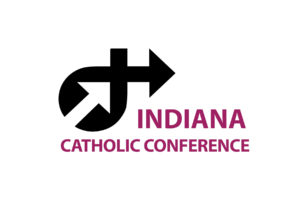By Victoria Arthur
Statehouse Correspondent for Indiana’s Catholic Newspapers
 The state budget proposal recently passed by the Indiana House of Representatives would put school choice within reach of nearly all Hoosier families, but advocates are preparing for a more challenging path in the Senate.
The state budget proposal recently passed by the Indiana House of Representatives would put school choice within reach of nearly all Hoosier families, but advocates are preparing for a more challenging path in the Senate.
Proposed changes include increasing the income eligibility for families to participate in the Choice Scholarship Program – also known as the voucher program – and the Tax Credit Scholarship Program, both of which made Indiana a pioneer in school choice more than a decade ago. The legislation would also remove other obstacles that have kept some families from taking advantage of school choice opportunities.
While critics have been outspoken about any further expansion to school choice in Indiana, proponents say that the two-year budget outlined in House Bill 1001 would benefit students and families statewide.
“The 2023 legislative session has the potential to be another historic one for education – not only for school choice, but for K-12 education in general,” said John Elcesser, executive director of the Indiana Non-Public Education Association, which represents the state’s more-than-400 non-public schools, including Indiana’s 175 Catholic schools. “It’s important that we look at the total picture.”
House Bill 1001, primarily authored by Rep. Jeff Thompson (R-Lizton), would increase the financial eligibility for school choice from the current 300 percent of the federal free and reduced lunch program income qualification to 400 percent. That amounts to a household income of approximately $220,000 for a family of four.
Another component of the legislation is the removal of the so-called tracks or pathways to qualifying for school choice that have kept many families from participating – even if they have met financial eligibility guidelines.
“In addition to the financial-eligibility piece, families have had to meet one of eight or nine tracks to eligibility, which I refer to as hoops,” Elcesser said. “These are obstacles that prevent families from participating in the program, and we have been working to eliminate them.”
These include requiring a student to have spent two semesters in a public school, or to live in a school district with a grade of “F” as determined by the state. In addition to removing those requirements, the budget passed by the House would expand school choice access to all kindergartners. Currently, a kindergartner in Indiana must meet certain guidelines to qualify, such as an older sibling participating in a choice program.
The bill passed the House 66-29 on a party-line vote, with all Republicans voting for it and all Democrats opposed. Now, at the midpoint of this session, the bill has moved to the Senate chamber.
Now that the bill has moved to the Senate, school choice advocates say they may face an uphill battle.
“Historically, the House has been more supportive of implementing and expanding the choice program,” Elcesser said. Some leaders in the Senate this year have been outspoken (opponents) of the choice expansion.
To build additional public support for the legislation, the INPEA and the Institute for Quality Education, another organization that has played a key role in Indiana’s school choice efforts, are planning a series of rallies across the state. The events, entitled “Share the Vision: School Choice for All,” will be held this month and next in South Bend, Fort Wayne, northwest Indiana, and Evansville.
Good Shepherd School will host the Evansville rally from 6 p.m. CDT to 7:30 p.m. CDT April 3.
The Indiana Catholic Conference has stood in support of House Bill 1001 and will continue to track it.
“This legislation would help so many more families send their children to the schools they believe will best meet their needs,” said Angela Espada, executive director of the ICC, the public policy voice of the Catholic Church in Indiana. “Every family is unique, and even the highest quality public school may not be the best choice for a particular family and their individual situation. We always support what is best for the child, and families are best at making those decisions.”
The ICC and the INPEA were key members of the coalition that led to the groundbreaking school choice legislation signed into law in 2011. While Indiana is still considered a trailblazer in school choice, some other states already have universal school choice, which would allow all students to receive public funding to attend the school of their choosing.
“With universal choice, anybody is eligible,” Elcesser said. “In universal choice states, anyone can take a percentage of their tax dollars and take it to a public school, a charter school, or a non-public school.”
To follow priority legislation of the ICC, visit www.indianacc.org. This website includes access to I-CAN, the Indiana Catholic Action Network, which offers the Church’s position on key issues. Those who sign up for I-CAN receive alerts on legislation moving forward and ways to contact their elected representatives.
